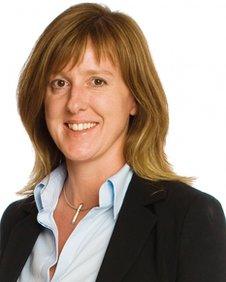Vince Cable: Boardrooms need more women
- Published

The Imperial Tobacco boss is one of only two female bosses of FTSE 100 firms
The government is seeking to turn up the pressure on businesses to include more women on their boards, telling them "doing nothing is not an option".
Business Secretary Vince Cable has written to the seven FTSE 100 companies with no female representation at the highest level to ask what steps they are taking to increase diversity.
Ministers say firms should aim to have at least one female director for every three men by 2015.
But they do not back mandatory quotas.
They say quotas are not the best way of achieving change.
According to the government, the number of Britain's largest publicly quoted companies with all-male boards has fallen from 21 to seven in the past two-and-a-half years.
Mr Cable said "real progress" had been made but he was determined to see "further action" in the next couple of years.
'Not about equality'
In his letter to the seven firms - Antofagasta, Croda, Glencore, Xstrata, Kazakhmys, Melrose and Vedanta - Mr Cable said they and other multinational businesses must ensure they had the "right people" around their boardroom table.
"My vision by 2015 is that Britain will not have a single FTSE 100 board without a significant female presence," he wrote.
"This is not about equality, this is about good governance and good business," he added.
"The international evidence supports this - diverse boards are better boards benefiting from fresh perspectives, opinions and new ideas which ultimately serve the company's long-term interests."
Mr Cable acknowledged the seven companies - which mainly operate in the mining and extractive sectors - faced "unique challenges" in attracting more women since their line of work often involved regular travel and projects in "remote areas of the world".
But he added: "Successful modern companies learn to adapt and survive and doing nothing is not an option any more."
European debate
Ministers have urged the UK's 350 largest public companies to set targets against which progress in boosting female representation on boards and executive committees can be judged.
Female representation on FTSE boards has risen to a record high of 16% in recent years, but ministers want this to go up to at least 25%.
There are currently only two FTSE 100 companies - Burberry and Imperial Tobacco - with female chief executives, after Cynthia Carroll left mining giant Anglo-American and Dame Marjorie Scardino retired from the top job at media firm Pearson last year.
The European Commission has proposed making it mandatory for companies to have 40% female directors on their boards, but the UK is among EU nations opposed to the idea while lawyers have raised doubts over whether it could be enforced.
France, Spain, Italy, Iceland and Belgium have introduced quota laws of their own.
- Published26 October 2012
- Published23 October 2012